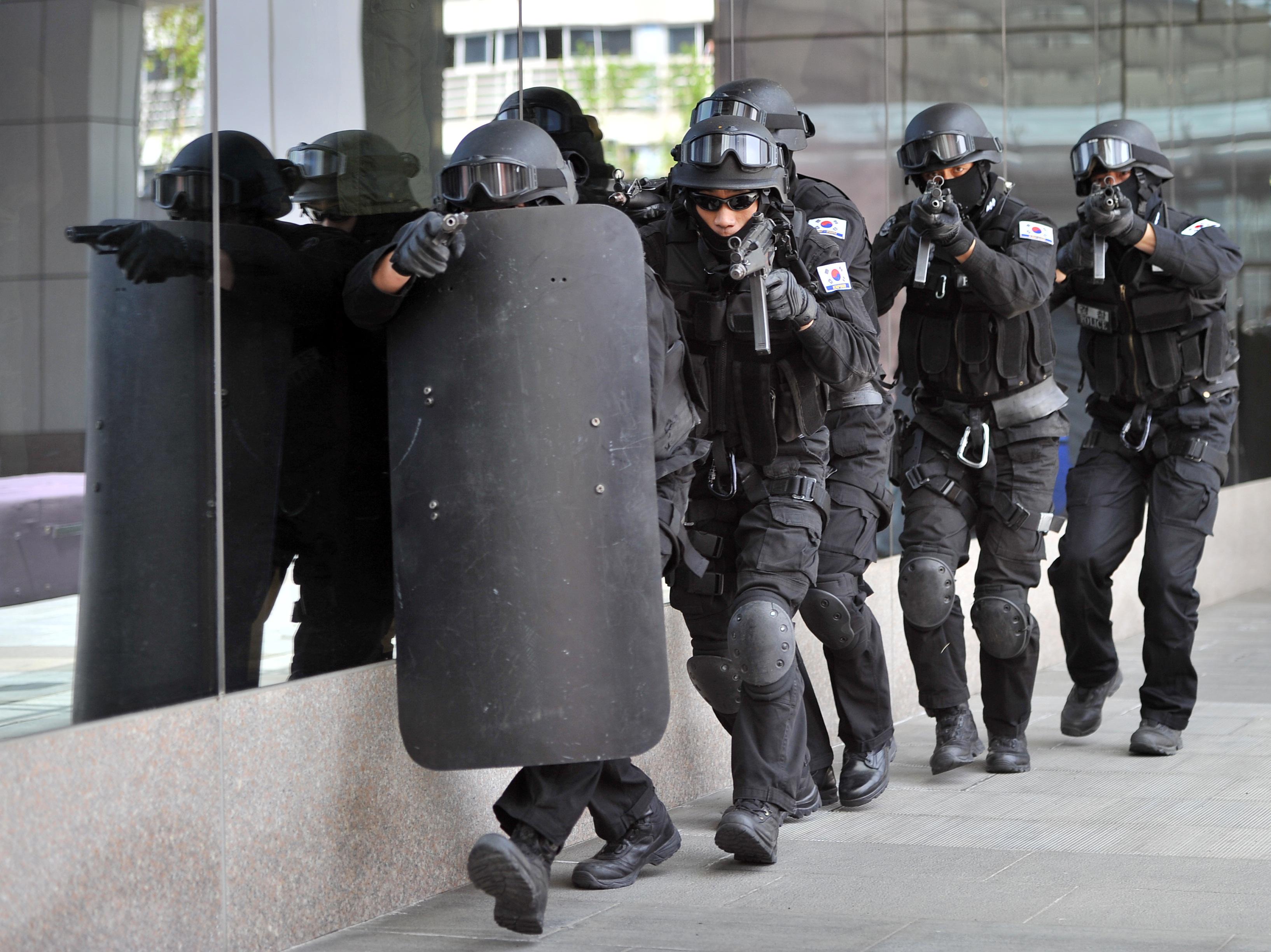Crime is Slate’s crime blog. Like us on Facebook, and follow us on Twitter @slatecrime.
So “swatting” is apparently a thing now, and I’m surprised that, given the Internet’s ingenuity when it comes to dangerous and vindictive pranks, it took this long to make it happen. “What is swatting?” you ask, because you are not a teenage boy with a desensitized moral compass. When you “swat” someone, you contact the police, falsely report a horrible crime or a hostage standoff, and convince them to send a SWAT team to your unsuspecting victim’s door. It’s the new, potentially more lethal version of ordering a pizza to someone’s house. Also, it’s illegal.
Swatting has actually been around for a few years, but it seems like it has only recently entered the mainstream consciousness. The Albany Times Union reported on a local boy who was recently swatted by a German man with whom he had argued on Skype; the German man, pretending to be the boy, told police that his father had shot his mother and was holding him hostage. Dozens of police officers apparently rushed to the scene, only to find nobody dead. (Colonie, N.Y. police told the Times Union the argument “stemmed from a dispute over a graphic design” the boy had made.)
The same German guy was also implicated in the swatting of another child in Ponte Vedra, Fla, in which he told a similar story (mother shot, hostages being held) that prompted a similar police response. This week, a 12-year-old boy pleaded guilty to swatting both Ashton Kutcher and Justin Bieber last fall, which I guess in some circles might make him as big of a hero as the guy who got the lead singer of Smash Mouth to eat two dozen eggs.
In some ways, swatting is a great prank: it flummoxes the victim while simultaneously tweaking authority, and also there’s a chance it might get on the news. But if you think about it for more than three seconds—which, apparently, some people don’t—it’s an absolutely terrible idea. Not only does it waste resources, and potentially prevent the police from responding to a real emergency elsewhere, all it takes is one jittery cop, or one jumpy homeowner, and somebody could get seriously injured or killed. As an FBI dispatch titled ”Don’t Make the Call: The New Phenomenon of Swatting” put it in 2008, one unsuspecting swattee “heard something and went outside to investigate—after first stopping in the kitchen to pick up a knife. What he found was a group of SWAT assault rifles aimed directly at him.” The guy could have cut himself on that knife, people!
The weirdest thing about this, to me, is how little verification the police apparently need before sending a SWAT team to someone’s house. Now, obviously, as a dispatcher, you don’t want to be too skeptical when someone calls and says they’re facing a hostage situation. And apparently the guy in the Albany case called through a “teleprinter” service for the hearing impaired, so that the police wouldn’t be able to hear his presumably accented, non-American voice. But, still, I always assumed there was some way that dispatchers could and did trace the address of the person making the call, just to make sure the call was legit, and wasn’t being placed by one of the Jerky Boys. I guess I was wrong?
